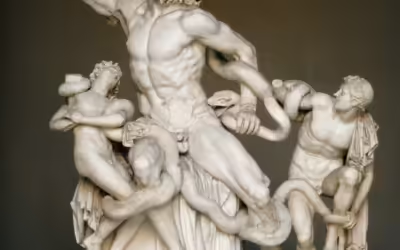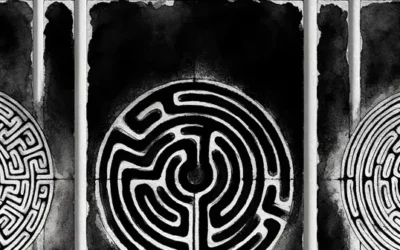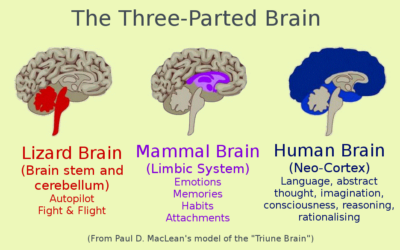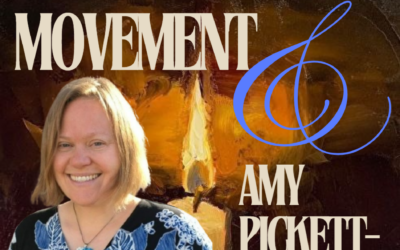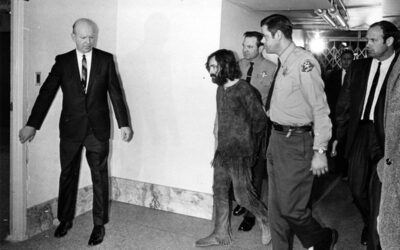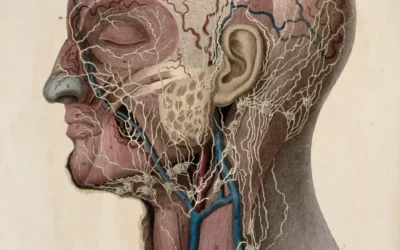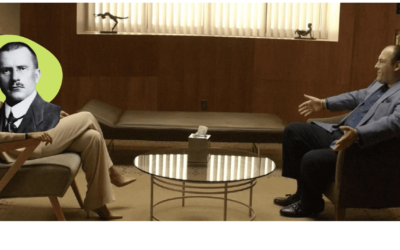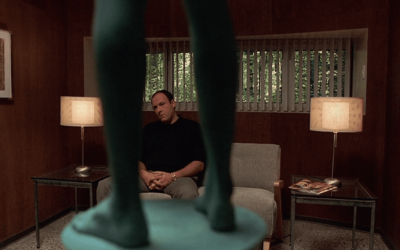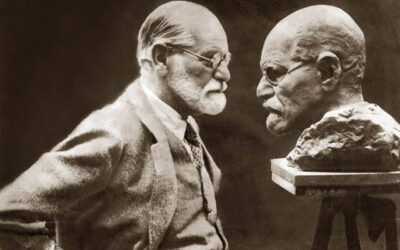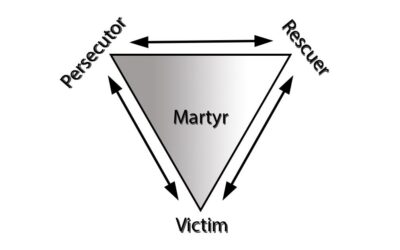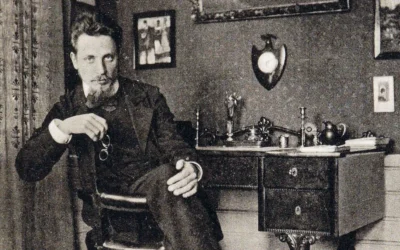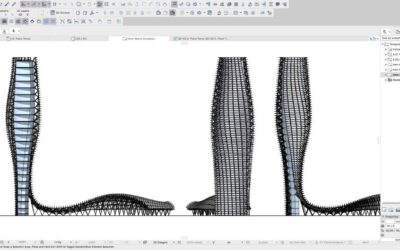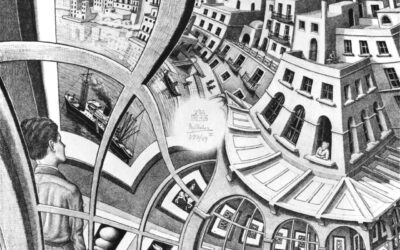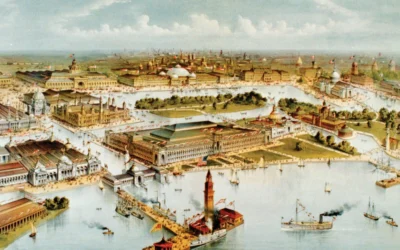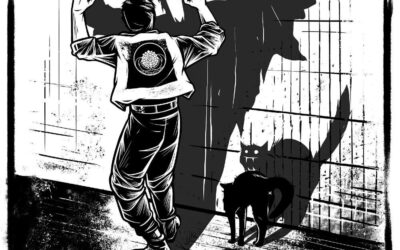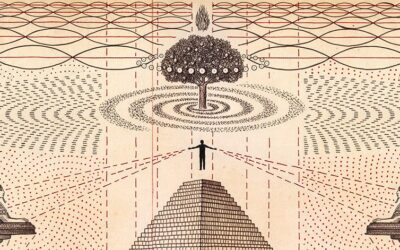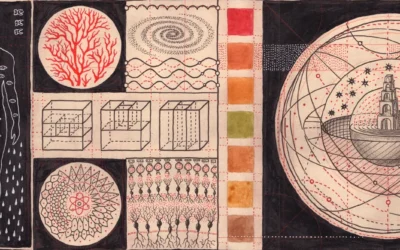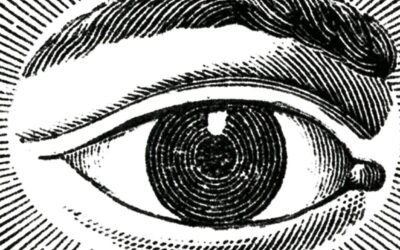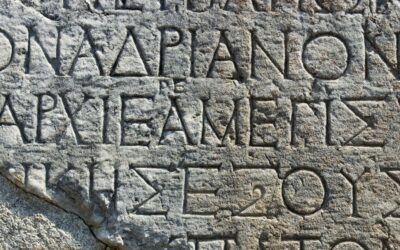Who is Dr. Graham Harvey? Breaking from Early Theorists British scholar Graham Harvey, a prominent voice in religious studies since the 1990s, has played a key role in updating the anthropology of religion for the 21st century. His work breaks from the mold of early luminaries like E.B. Tylor, James Frazer, and Mircea Eliade, who tended to view indigenous and pagan religions through a lens of "primitive" superstition and irrationality. Tylor and Frazer, writing in the late 19th century, largely saw animistic and...
James George Frazer: Pioneering Insights into Myth, Religion, and the Psyche
Who was James George Frazer? James George Frazer (1854-1941) was a groundbreaking Scottish anthropologist, folklorist, and classical scholar whose work laid the foundations for modern anthropology, psychology, and comparative religious studies. Best known for his monumental study of myth and religion, The Golden Bough, Frazer pioneered the comparative method in anthropology, seeking to unveil universal patterns and evolutionary sequences in human beliefs and practices across cultures. His ideas not only shaped...
Trauma, Ritual, and Animism: Integrating the Preconscious Mind
Moreover, the new animism also sheds light on the intimate connection between trauma and intuition in the human brain. Both of these experiences are deeply rooted in the paleomammalian complex and the limbic system, which are associated with emotional processing, memory, and unconscious cognition (MacLean, 1990). This suggests that the capacity for intuitive understanding and the vulnerability to traumatic stress are two sides of the same coin, and that they both reflect the fundamental importance of the unconscious mind in human experience.
Synthesizing Post-Freudian and Post-Jungian Perspectives on Trauma and the Psyche
How do Jungians and Freudians Conceptualize Trauama Differently? The understanding of trauma and its impact on the human psyche has been a central concern for depth psychology since its inception. However, the two pioneering schools of thought in this field, Sigmund Freud's psychoanalysis and Carl Jung's analytical psychology, developed divergent frameworks for conceptualizing the nature and impact of traumatic experiences. Freud's model of the psyche emphasized the central role of instinctual drives,...
Frequently Asked Questions About Brainspotting Therapy
F.A.Q. about Brainspotting What is Brainspotting? Brainspotting is an innovative psychotherapy approach that uses specific eye positions to access unprocessed trauma in the subcortical brain (Grand, 2013). It was developed by Dr. David Grand in 2003 as an offshoot of EMDR therapy. How does Brainspotting work? Brainspotting works by using focused eye positions to access survival-based subcortical parts of the brain like the amygdala that are often inaccessible through talk therapy alone (Grand, 2013). The...
SEO for Therapists: How Therapists Can Rank Better on Google
How to Optimize Your Therapy Website for Google As a therapist in private practice, attracting new clients is essential for growing your business. With more and more people searching for mental health services online, having a strong digital presence is crucial. However, simply having a website isn't enough. To get in front of potential clients, you need to optimize your site for search engines like Google. This is where Search Engine Optimization (SEO) comes in. SEO is the process of improving your website's...
Neurological Basis of Intuition, Attachment, and Trauma
Reckoning with the Spiritual and Mystical in Neurology The Polyvagal Theory and Attachment Stephen Porges' Polyvagal Theory has revolutionized our understanding of the autonomic nervous system's role in regulating emotional states and social engagement (Porges, 2011). According to this theory, the autonomic nervous system plays a crucial role in shaping our emotional experiences and attachment styles. In secure attachment, where caregivers are attuned and responsive, the ventral vagal complex promotes feelings of...
Unraveling the Enigma of Trauma and the Supernatural: Alex Monk’s Groundbreaking Work in Psychotherapy
A Pioneering Exploration of the Psyche's Hidden Realms In an enthralling podcast episode, psychotherapist and author Alex Monk takes listeners on a captivating journey through the uncharted territories of the human psyche. Drawing upon his trailblazing book "Trauma and the Supernatural in Psychotherapy," Monk introduces a revolutionary framework for understanding the intricate entanglement of relational trauma, unconscious phantasies, and supernatural experiences. His work invites clinicians to venture beyond the...
The “Lost World” of Miyazaki’s Masterpiece
*This review contains spoilers for the film The Boy and the Heron What is The Boy and the Heron trying to tell us? To escape from this depressing situation, they often find themselves wishing they could live in a world of their own - a world they can say is truly theirs, a world unknown even to their parents. To young people, anime is something they incorporate into this private world. I often refer to this feeling as one yearning for a lost world. It's a sense that although you may currently be living in a world...
The Jungian Anima and Animus: How They Show Up in Relationships
How does the anima and animus show up in relationships? The concept of the anima and animus is one of the most enduring and influential ideas to emerge from the work of Swiss psychiatrist Carl Jung. In this post, we'll take a deep dive into the anima/animus theory, exploring its origins, evolution, and practical applications in intimate relationships and family systems. We'll see how Jung's original formulation of the anima/animus was expanded upon by his proteges and successors, and consider criticisms and...
Alvar Aalto: Organic Modernism and the Humanization of Design
Who was Alvar Aalto? Alvar Aalto (1898-1976) was a Finnish architect and designer whose work synthesized modernist ideals with a deep reverence for nature and humanism. Over a career spanning more than five decades, Aalto created a vast body of work that included buildings, furniture, glassware, and textiles, all united by a common vision of organic harmony and human-centered design. From his early experiments in bent wood furniture to his monumental civic centers and churches, Aalto's designs embodied a unique...
Arne Jacobsen: Organic Modernism
Who was Arne Jacobsen? Arne Jacobsen (1902-1971) was a seminal figure in Danish modernist architecture and design. Over a prolific career, Jacobsen created a visionary body of work that fused the clean minimalism of the International Style with a distinctively Scandinavian sense of warmth and humanism. His buildings and furnishings exemplified a philosophy of "organic modernism," embracing the latest technologies and materials while remaining grounded in the tactility of nature and the contours of the human body....
Charles Eames: Pioneering Designer of the Modern Era
Who were Charles and Ray Eames? Charles Eames (1907-1978) was a pioneering American designer whose groundbreaking work in furniture, architecture, and film helped define the aesthetic of postwar modernism. In partnership with his wife and creative collaborator Ray Eames, Charles developed a design philosophy centered on the belief that good design should be accessible to all. From their iconic molded plywood chairs to their experimental Case Study Houses, the Eameses' work embodied the optimism and innovation of...
Ludwig Mies van der Rohe: Architect of the Modern Age
Who was Ludwig Mies van der Rohe? Ludwig Mies van der Rohe (1886-1969) was a towering figure in the history of modern architecture, whose influence continues to shape the built environment well into the 21st century. Over a career spanning more than half a century, Mies developed a distinctive vision of structural clarity and spatial poetry that redefined the very language of building. From his early experiments in European modernism to his iconic American skyscrapers, Mies pursued an architecture of essential...
Niels O. Möller: Master of Danish Modern Chair Design
Who was Niels Moller? Early Life and Training Niels Otto Möller was born in 1920 in Aarhus, Denmark. The son of a shoe manufacturer, Möller developed an appreciation for craftsmanship and materials from an early age. As a young man, he trained as a cabinetmaker before studying at the prestigious Danish School of Arts and Crafts in Copenhagen. After completing his education in 1944, Möller returned to Aarhus and opened his own workshop and design studio. There he began experimenting with chair designs, honing the...
Hans J. Wegner: The Master of Chairs and teh Danish Modern
Hans J. Wegner: Archetypes of Danish Chair Design Hans J. Wegner (1914-2007) was a pioneering Danish furniture designer whose work helped define the aesthetic of mid-century modern design. Over a prolific career spanning nearly seven decades, Wegner crafted a stunning array of chairs that married the sleek functionality of modernism with the warmth and organic sensibility of natural materials. His designs, at once timeless and utterly original, gave expression to the deepest principles of form and craftsmanship....
Was Freud Wrong About Sexuality?
Evolution, the Divided Brain, and the Complexity of the Human Psyche Sigmund Freud, the father of psychoanalysis, is famous (or perhaps infamous) for his controversial theories that placed sexuality at the very center of the human psyche. He argued that sexual instincts and impulses, emerging from the unconscious id, were the primary drivers of human behavior, motivation, personality development, and even mental illness. But was Freud wrong about the primacy of sexuality? Insights from evolutionary psychology,...
Paul MacLean’s Triune Brain: Evolutionary Layers of the Human Psyche
Who was Paul Maclean? Paul D. MacLean (1913-2007) was an American physician and neuroscientist who made significant contributions to the study of brain evolution and behavior. He is best known for his triune brain theory, which proposed that the human brain is composed of three distinct evolutionary layers, each associated with different functions and behavioral patterns. MacLean's work has had a profound influence on fields ranging from neuroscience to psychiatry to depth psychology, offering a compelling...
Antonio Damasio: Reuniting Mind, Body, and Emotion
Who is Antonio Damasio? Antonio Damasio is a pioneering neuroscientist, best-selling author, and professor of psychology, philosophy, and neurology at the University of Southern California, where he directs the Brain and Creativity Institute. His groundbreaking work challenges centuries of dualistic thinking about mind and body in Western culture, illuminating the deep connections between reason, emotion, and biological regulation. Damasio's books, including the seminal "Descartes' Error," have had a profound...
The Quantum and Metaphysics of Carl Jung
How was Carl Jung Influenced by Math an Physics While Carl Jung was not deeply familiar with the technical details of physics and mathematics, these fields nonetheless had a significant influence on his thinking about psychology and the nature of the psyche. Jung lived in early 20th century Zurich, a time and place where groundbreaking discoveries in physics were very much "in the air." This zeitgeist, along with personal friendships and correspondence with eminent physicists and mathematicians like Wolfgang...
Growing Through Grief
Holistic and Somatic Approaches to Healing After Loss Check out information on The Light Movement and their trainings and offerings. Grief is a universal human experience, yet it is deeply personal and unique to each individual. In this article, we explore innovative approaches to grief therapy that integrate somatic and holistic practices to help people grow through loss. We sat down with Amy Pickett-Williams, a grief therapist with over 25 years of experience, to discuss her work and the nonprofit she founded,...
The Cult Psychology of The Satanic Panic
Understanding the Appeal of a Moral Panic What was the Satanic Panic The 1970s and 1980s saw a wave of moral hysteria known as the "Satanic Panic," characterized by widespread fear of alleged Satanic cult activity. Despite a lack of evidence, many Americans became convinced that a vast, underground network of Satanists was responsible for everything from child abuse to human sacrifice. This essay will examine the social and psychological factors that made people vulnerable to these conspiracy theories, including...
The Cult Psychology of Jonestown
What was the Jonestown Cult? The Peoples Temple, led by Jim Jones, was a notorious cult that ended in the tragic mass murder-suicide of over 900 of its members in Jonestown, Guyana in 1978. While its shocking end makes it stand out, many of the manipulative tactics and situational factors that allowed Jones to exert such control were not unique. As the saying goes, in most cults, little of what is good is original, and little of what is original is good. By examining the Peoples Temple and Jonestown, we can gain...
The Cult Psychology of The Branch Davidians
The Tragedy of the Branch Davidians: Abuse, Control, and the Perils of Charismatic Leadership Who was David Koresh? The 1993 Waco siege that ended in the fiery deaths of David Koresh and over 70 of his Branch Davidian followers shocked the world. But upon closer examination, the tactics Koresh used to ensnare and control his followers were not entirely unique. While the Branch Davidians took them to deadly extremes, elements of Koresh's playbook can be found in other cults as well as abusive interpersonal...
The Cult Psychology of The Manson Family
The Manson Family Cult: Origins, Influence, and Lessons Stolen and Reappropriated Elements The beliefs and practices of cults often combine unoriginal elements in novel but misguided ways. The Manson Family was no exception, drawing from various psychological models, religious traditions, and pseudoscientific ideas of the era. Charles Manson, the cult's charismatic leader, wove together a patchwork theology that included references to Scientology's concept of "clearing," the Process Church's worship of both...
Cult Psychology of the Solar Temple
The Rise and Fall of the Order of the Solar Temple What was The Order of the Solar Temple The Order of the Solar Temple was a destructive cult that operated in the late 20th century, leaving a tragic legacy of mass suicides. Founded by Joseph Di Mambro and Luc Jouret, the cult blended elements of esotericism, New Age spirituality, and apocalyptic thinking to attract followers seeking meaning and transcendence. This essay will examine the origins, practices, and ultimate downfall of the Order of the Solar Temple...
The Rise and Fall of Aum Shinrikyo
What was the Aum Shinrikyo Cult? Cultural Anxieties, Psychological Manipulation, and a Cult's Deadly Legacy Stealing from Other Systems Aum Shinrikyo, like many cults, appropriated and repackaged beliefs and practices from various religions, philosophies, and scientific fields, rather than developing a wholly original worldview. The group cobbled together elements of Buddhism, Hinduism, Christianity and New Age spirituality into an eclectic amalgam used to justify their leader's authority. Aum's central practice...
The Sullivanian Institute: Anatomy of an Urban Psychotherapy Cult
What was the "Sullivans" Psychotherapy Cult? The Sullivanian Institute, a notorious psychotherapy cult that operated in New York City from the 1950s through the 1980s, exemplifies the adage that in cults, nothing good is original and nothing original is good. Many of its core practices and beliefs were repackaged from other psychological models, religious traditions, and scientific theories: The emphasis on interpersonal dynamics in therapy sessions was adapted from the work of psychiatrist Harry Stack Sullivan,...
The Somatic and Neurological Experience of Brainspotting Therapy
The Trauma Healing Power of Brainspotting Brainspotting is a powerful therapeutic approach that engages the body and brain in a unique way to facilitate healing from trauma and emotional distress. Developed by Dr. David Grand, brainspotting evolved out of his work with EMDR (Eye Movement Desensitization and Reprocessing) and taps into the deep connection between the brain's visual system, emotional processing centers, and physiological responses. While the process may vary for each individual, there are some...
How to Pick a Therapy Chair for Your Psychotherapy Office
Why Design Psychology Matters Insights from 12 Mid-Century Modern Masters of Design The field of design psychology examines how the built environment shapes human behavior, emotions and well-being. From the layout of city streets to the furnishings in our homes, the designed world is a powerful yet often invisible influence on our inner lives. We have most of these chairs in our Hoover offices at Taproot Therapy Collective. If you are local you can come test them out. Nowhere is this more important than in spaces...
Nietzsche’s Influence and Counter Transference on Carl Jung
Nietzsche's Influence and Counter Transference on Carl Jung The relationship between Friedrich Nietzsche and Carl Jung was one of profound influence mixed with misunderstanding, fear, and divergence. Jung built upon Nietzsche's pioneering explorations of the hidden depths of the human psyche, yet also harbored deep concerns about following Nietzsche's path. A close examination reveals that Jung was both more indebted to and more conflicted about Nietzsche than he openly acknowledged. One curious episode that...
When Therapy Becomes Metaphysics:
Examining the Philosophical Implications of Psychotherapy Models Psychotherapy, at its core, aims to alleviate mental distress, facilitate personal growth, and enhance well-being. Various therapeutic models, from psychoanalysis to cognitive-behavioral therapy, offer frameworks for understanding the human psyche and fostering positive change. However, when these models are extended beyond their clinical applications and taken to extremes, they can morph into all-encompassing metaphysical and ethical systems. The...
What would a Jungian Ethics Look Like?
What were Carl Jung's Ethics? The Moral Imperative of Individuation At the heart of Jung's approach to ethics is the idea of individuation as a moral imperative. Individuation, the lifelong process of psychological integration and growth, is seen not just as a personal journey but as an ethical undertaking. As Jung's close associate Erich Neumann argues in his seminal work "Depth Psychology and a New Ethic", taking responsibility for one's own psychological development, confronting the shadow, and striving for...
What Does the Garden of Eden Symbolize?
The Symbolism of Eden: Language, Consciousness and the Birth of the Ego The story of the Garden of Eden, found in the opening chapters of Genesis, is one of the most well-known and influential myths in human history. On the surface, it describes the idyllic life of the first humans, their temptation by the serpent to eat the forbidden fruit, and their subsequent exile from paradise as punishment. Yet this simple narrative is laden with profound symbolic meanings that have been pondered by theologians,...
Understanding Alexithymia
What is Alexithymia? Alexithymia is a condition characterized by difficulties identifying and describing one's own emotions. People with alexithymia have trouble recognizing, processing and regulating their feelings. This can lead to challenges in relationships, self-awareness, and overall emotional and mental well-being. Alexithymia is not the same as being a sociopath or psychopath. Rather than an inability to feel empathy, people with alexithymia do experience emotions, sometimes very intensely. However, they...
Marriage Counseling: The Parts we Miss
Understanding the Role of Trauma and Inner Parts When couples embark on the journey of marriage counseling, they often wonder whether the process is truly working for them. While some may experience immediate improvements in their relationship, others may feel stuck or unsure if they are making progress. To determine the effectiveness of marriage counseling, it is crucial to understand the role of trauma and how it affects individuals at different stages of their lives, entrenching certain parts of the self....
Looking at the Therapy on the Sopranos from a Jungian Lens
What if Tony Soprano had gone to a Jungian Analyst? The Sopranos is one of my favorite shows. In fact I often re-watch it while I write these blog posts and so I decided to write some blog posts on the show itself. I have said before that I think the shows enduring popularity is a result of its ability to show the macrocosm of a power structure and the microcosm of the individual psychologies that inhabit it. There is just one problem. Over the years I have drifted more post Jungian in my therapeutic orientation....
The Sopranos: The Psychology of Power, Empire, and Capitalism
Biederman argued that the show (The Sopranos) is, at its heart, about the bathetic nature of decline. “’Decline not as a romantic, singular, aesthetically breathtaking act of destruction,’ he said, but as a humiliating, slow-motion slide down a hill into a puddle of filth. ‘You don’t flee a burning Rome with your beautiful beloved in your arms, barely escaping a murderous horde of barbarians; you sit down for 18 hours a day, enjoy fewer things than you used to, and take on the worst qualities of your parents...
Freud: The Making (and Unmaking) of an Illusion
Dedication : The late author of Freud: The Making of an Illusion, Dr. Fredrick Crews was a pen pal of mine. He was an eternally interesting and a sardonic rapier sharp wit, with a shrewd eye for empirical hygiene but also a clear head and fascinating perspective up to the end of his life. His death in June '24 marks the end of our correspondence but not the influence of his work. I would highly recommend his book on Freud, as it is based on the most recent archive disclosures available and one of the best...
Freud’s Death Drive: What was Thanatos?
Why did Freud Abandon His Death Drive Theory? In the hit TV show Mad Men, ad executive Pete Campbell makes a daring pitch to Lucky Strike cigarettes. To sell their product, he suggests, they should embrace the subconscious "death wish" that drives people to smoke. While Campbell's pitch was shocking, the concept he based it on - Sigmund Freud's "death drive," or thanatos - is one of the most intriguing and controversial ideas in the history of psychology. Freud believed that just as humans have an innate drive...
Meeting the Diverse Needs of Birmingham Alabama’s Community
Where Should Young People Get Therapy in Birmingham Alabama? Birmingham, Alabama is a city steeped in rich history, cultural diversity, and a tapestry of religious traditions. This multifaceted backdrop makes it an ideal setting for innovative and culturally-responsive therapy and counseling, which is exactly what Taproot Therapy Collective aims to provide. Diverse Cultural and Religious Landscape Birmingham's population reflects a diverse mix of races, ethnicities, and religions. Approximately 70% of the city's...
Dr. John E. Fryer’s Legacy and the Current State of Therapy
Who was Dr. H Anonymous? Dr. John E. Fryer, known as Dr. H. Anonymous, played a pivotal role in the history of psychiatry and the fight against the stigmatization of homosexuality. In 1972, Dr. Fryer delivered a groundbreaking speech at the American Psychiatric Association (APA) annual meeting, challenging the classification of homosexuality as a mental disorder. Wearing a mask and using a voice-altering microphone to protect his identity, Dr. Fryer spoke about the experiences of gay psychiatrists and the need...
Mindfulness and Mental Health
How Present-Moment Awareness Can Transform Your Life Mindfulness, the practice of bringing non-judgmental awareness to the present moment, has emerged as a powerful tool for promoting mental health and well-being. Psychologists, therapists, and counselors are increasingly incorporating mindfulness-based interventions into their work with clients struggling with issues like anxiety, depression, trauma, ADHD, eating disorders, and more. The Benefits of Mindfulness Research has shown that regular mindfulness...
How Therapy Can Help Heal the Mind and Body
Trauma and the Brain: Trauma, whether stemming from emotional abuse, narcissistic abuse, chronic pain, or other experiences, can have a profound impact on the brain and body. Psychologists and therapists are increasingly recognizing the importance of trauma-informed therapy in treating mental health issues like anxiety, depression, PTSD, and more. The Neurobiological Impact of Trauma Trauma can alter the brain's structure and function, particularly in regions like the amygdala, hippocampus, and prefrontal cortex....
The Karpman Drama Triangle
A Comprehensive Guide for Therapists and Clients to The Karpman Drama Triangle The Karpman Drama Triangle, developed by psychologist Stephen Karpman, is a powerful tool used by psychologists, therapists, and counselors in various settings, including individual therapy, marriage counseling, couples therapy, family therapy, and group therapy. This model helps clients understand and break free from dysfunctional relationship dynamics that often contribute to mental health issues such as anxiety, depression, trauma,...
The History of Personality Psychology
The History of Personality Psychology? Personality psychology is the study of the patterns of thoughts, feelings, and behaviors that make each individual unique. Throughout history, philosophers, scientists and psychologists have grappled with questions of identity, self-concept, and individual differences that form the core of this field. In this article, we'll dive into the fascinating history of personality psychology, exploring the key theorists, tests, and typology systems that have shaped our understanding...
Understanding DARVO: Recognizing Abuse Tactics
Understanding DARVO: Recognizing Abuse Tactics in Relationships and Politics What does D.A.R.V.O. mean? DARVO is an acronym that stands for "Deny, Attack, and Reverse Victim and Offender." It refers to a common strategy employed by abusers and manipulators in which they flip the script by denying their abusive behavior, attacking the credibility and character of their victims, and positioning themselves as the true victim. By understanding the history and dynamics of DARVO, we can better recognize these toxic...
William Morris: Weaving the Threads of Myth into Design
Who Was William Morris? William Morris was a designer known for his exquisite tapestries depicting scenes from myth, legend and medieval romance. More than decorative objects, these woven works invite the viewer into a mesmerizing world of archetypes, hidden meanings and the unconscious stirrings of the soul. Morris's oeuvre exemplifies many of the insights of depth psychology - the recognition that powerful symbols, when engaged with imaginatively, can connect us to profound truths within the psyche. The Mythic...
Rainer Maria Rilke’s Insights into the Poetic Soul
Who was Rainer Maria Rilke? "Find out the reason that commands you to write; see whether it has spread its roots into the very depth of your heart; confess to yourself you would have to die if you were forbidden to write." ― Rainer Maria Rilke, Letters to a Young Poet Rainer Maria Rilke, an Austrian poet and novelist who lived from 1875 to 1926, is widely recognized as one of the most lyrically intense and spiritually profound poets in the German language. His work explores themes of solitude, the inner life, the...
The Rise and Evolution of New Urbanism: A Cultural, Technological, and Political Perspective
The Psychology of New Urbanism What is New Urbanism? New Urbanism emerged in the 1980s as a response to the social, environmental, and aesthetic shortcomings of suburban sprawl and modernist urban planning. The movement gained prominence through the 2000s, reflecting broader shifts in culture, technology, and politics that shaped its principles and practices. Cultural Context: The rise of New Urbanism coincided with growing environmental awareness and a desire for more sustainable and community-oriented living...
Postmodern Classicism: Reviving Classical Forms in Contemporary Architecture
What is Postmodern Classicism? The Countercultural Turn and Postmodern Historicism emerged in the 1960s as a radical response to the perceived shortcomings of modernist architecture. This movement drew inspiration from the social upheavals and changing cultural values of the era, seeking to create a more eclectic, expressive, and contextually responsive built environment. Cultural Context: The rise of Postmodern Historicism coincided with the countercultural movements of the 1960s, which challenged established...
The Oil Crisis and the Passive Solar Movement: Architecture Responds to Energy Concerns
What is Oil Crisis Architecture? The Resurgence of Modernist Principles in Contemporary Architecture: Neo-Modernism Neo-Modernism emerged in the late 20th and early 21st centuries as a reinterpretation of modernist principles in architecture. This movement developed in response to the perceived excesses of postmodernism and the need to address contemporary challenges such as sustainability, technological innovation, and urbanization. Historical Context and Key Characteristics The rise of Neo-Modernism reflects a...
Deindustrialization and the Postmodern Corporate Headquarters: Reimagining the Workplace
The Psychology of the Post Modern Corporate Office Deindustrialization and the Postmodern Corporate Headquarters emerged in the 1980s as a response to the shifting economic landscape and the rise of postmodernism in architecture. This trend represented a significant shift in the design of commercial spaces, reflecting the changing nature of work and the role of corporations in society. Historical Context and Key Characteristics The transition from industrial to service-based economies in many Western countries...
The Countercultural Turn and Postmodern Historicism: Challenging Modernist Orthodoxy
The Psychology of Post Modern Historicism What is Postmodern Classicism Postmodern Classicism emerged in the 1980s as a critique of modernist architecture's rejection of historical styles. The movement sought to reintegrate classical elements into contemporary design, reflecting broader cultural, technological, and political shifts of the time. Historical Context and Key Characteristics Postmodern Classicism arose during a period of growing disillusionment with modernist urban renewal projects and a desire to...
Computational Design and Digital Fabrication: Reshaping Architectural Possibilities
The Psychology of Computational Design Computational Design and Digital Fabrication represent a revolutionary approach in architecture that leverages advanced computer algorithms and cutting-edge manufacturing technologies to create complex, highly optimized structures. This trend is pushing the boundaries of what's possible in architectural form, efficiency, and customization. In this exploration, we'll delve into the origins, characteristics, and psychological underpinnings of Computational Design and Digital...
Adaptive Reuse: Breathing New Life into Existing Structures
The Psychology of Adaptive Reuse Adaptive Reuse is an architectural approach that focuses on repurposing existing buildings for new functions while preserving their historical, social, or architectural value. This strategy has gained increasing prominence in the 21st century as a sustainable alternative to demolition and new construction. In this exploration, we'll delve into the origins, characteristics, and psychological underpinnings of Adaptive Reuse in architecture. What is Adaptive Reuse? Adaptive Reuse is...
Adaptive Architecture: Architecture of the Environment
The Psychology of Adaptive Architecture Adaptive Architecture: Architecture of the Environment Adaptive Architecture represents an innovative approach where buildings are designed to adjust and respond to their environment, occupants, and usage patterns. This emerging field combines elements of architectural design, sensor technology, artificial intelligence, and mechatronics to create structures that can change and optimize themselves over time. In this exploration, we'll delve into the origins, characteristics,...
Biophilic Design: Reconnecting Humans with Nature through Architecture
The Psychology of Biophilic Design Biophilic Design: Reconnecting Humans with Nature through Architecture Biophilic Design is an innovative approach to architecture that seeks to satisfy the innate human need to affiliate with nature in the built environment. This concept, while not a distinct architectural style, has become increasingly influential in contemporary design practice. In this exploration, we'll delve into the origins, characteristics, and psychological underpinnings of Biophilic Design in...
Post-Digital Architecture: Blending the Virtual and Physical Realms
Post-Digital Architecture: Blending the Virtual and Physical Realms Post-Digital Architecture: Bridging the Digital and Physical Realms Post-Digital Architecture emerged in the early 21st century as a response to the pervasive influence of digital technologies on design and daily life. This movement represents a shift beyond the mere novelty of digital tools, instead critically engaging with the implications of digital culture on architectural practice and spatial experience. By blending virtual and physical...
New Materialism in Architecture: Embracing Material Agency and Ecological Thinking
The Psychology of New Materialism New Materialism in architecture represents a shift in design thinking that emerged in the early 21st century. This approach challenges traditional notions of matter as passive and inert, instead recognizing materials as active agents in the design process. New Materialism in architecture emphasizes the interconnectedness of human and non-human actors, promoting a more ecological and ethically conscious approach to building. In this exploration, we'll delve into the origins,...
Parametricism: The New Digital Paradigm in Architecture
The Psychology of Parametricism What is Parametricism? Parametricism, a design paradigm that emerged in the late 20th and early 21st centuries, represents a significant shift in architectural thinking and practice. This approach, which relies heavily on algorithmic design processes and computational power, has reshaped how architects conceptualize, design, and construct buildings. Cultural, Technological, and Political Context The rise of parametricism can be attributed to several key factors: Technological...
Neo-Modernism: Reviving and Refining Modernist Principles
The Psychology of Neo-Modernism What is Neo-Modernism? Neo-Modernism emerged in the late 20th and early 21st centuries as a thoughtful return to and reinterpretation of modernist principles in architecture. This movement seeks to address the criticisms of modernism while retaining its core values of functionalism, simplicity, and technological innovation. By combining the clarity of modernist design with contemporary concerns about sustainability, context, and human experience, Neo-Modernism offers a nuanced...
Art Deco Architecture: Embracing Modernity with Style
The Psychology of Art Deco What is Art Deco? Art Deco, a prominent design movement that flourished in the 1920s and 1930s, represented a bold embrace of modernity, technology, and machine aesthetics. This style, characterized by its sleek lines, geometric patterns, and luxurious materials, left an indelible mark on architecture, industrial design, and the visual culture of the early 20th century. In this exploration, we'll delve into the origins, characteristics, and psychological underpinnings of Art Deco and...
City Beautiful Movement: Urban Grandeur and Social Reform
The Psychology of the City Beautiful Movement What was the City Beautiful Movement? The City Beautiful Movement, flourishing from the 1890s to the 1920s, was a transformative urban planning philosophy that swept across North America. This movement sought to introduce beautification and monumental grandeur in cities, driven by the belief that aesthetic improvements could foster a harmonious social order and elevate civic virtue. By reimagining urban spaces as grand, ordered environments, the City Beautiful...
Beaux-Arts Architecture: Grandeur and Classical Revival
The Psychology of Beaux Arts Beaux-Arts architecture, which flourished from the 1830s to the early 1900s, represents the pinnacle of academic classicism. Originating from the École des Beaux-Arts in Paris, this style is characterized by its grandeur, symmetry, and lavish ornamentation. In this exploration, we'll delve into the historical context, key characteristics, and psychological underpinnings of Beaux-Arts architecture, examining it through the lenses of dialectical materialism and Jungian depth psychology....
Arts and Crafts Movement: Celebrating Craftsmanship and Simplicity
The Psychology of the Arts and Crafts Movement The Psychology of the Arts and Crafts Movement: Celebrating Craftsmanship and Simplicity The Arts and Crafts Movement, which emerged in Britain in the late 19th century and quickly spread to other parts of the world, represented a rejection of the industrialized production and ornate aesthetics of the Victorian era. This movement, characterized by its emphasis on traditional craftsmanship, simple forms, and natural materials, had a profound impact on architecture,...
Victorian Eclecticism: A Fusion of Styles
The Psychlogy of Victorian Eclecticism The Psychology of Victorian Eclecticism: A Fusion of Styles Victorian Eclecticism, prevalent during the reign of Queen Victoria (1837-1901), represents a period of architectural exuberance and diversity. This movement, characterized by its blend of various historical styles, reflects the complex social and cultural landscape of the 19th century. In this exploration, we'll examine the origins, characteristics, and psychological underpinnings of Victorian Eclecticism....
Romantic Architecture: Embracing Emotion and Nature
The Psychology of Romantic Architecture What is Romantic Architecture? Romantic architecture, emerging in the late 18th century and flourishing through the 19th century, represents a departure from the strict rationalism of Neoclassicism. This movement, characterized by its emphasis on emotion, nature, and the picturesque, sought to create buildings that stirred the imagination and evoked strong feelings. In this exploration, we'll delve into the origins, characteristics, and psychological underpinnings of...
Gothic Revival Architecture: Reimagining Medieval Splendor
The Psychology of Gothic Revival What is Gothic Revival? Gothic Revival architecture, flourishing from the late 18th to the early 20th centuries, represents a romantic reimagining of medieval Gothic style. This movement, characterized by pointed arches, steep gables, and ornate decorations, emerged as a reaction against the formal classical styles that preceded it. In this exploration, we'll examine the origins, characteristics, and psychological underpinnings of Gothic Revival architecture. Historical Context...
Greek Revival Architecture: The American Greek Resurgence
The Psychology of Greek Revival What is Greek Revival? Greek Revival architecture, flourishing in the United States from about 1825 to 1860, represents a significant chapter in American architectural history. This style, characterized by its imposing columns and pediments, drew inspiration from ancient Greek temples, embodying the young nation's aspirations for democracy and cultural refinement. In this comprehensive exploration, we'll delve into the origins, characteristics, and psychological underpinnings of...
Colonial Architecture: Bridging Past and Present in American Design
The Psychology of Colonial Architecture Colonial architecture stands as a testament to America's rich historical tapestry, embodying the spirit of early settlers and their quest for identity in a new world. This architectural style, prevalent from the 1600s to the mid-1800s, continues to influence modern design and captivate the imagination of homeowners and architects alike. In this comprehensive exploration, we'll delve into the origins, characteristics, and psychological underpinnings of Colonial architecture,...
The Jungian Shadow: Exploring the Hidden Depths of the Psyche
What is the Jungian Shadow in Psychology? There's a picture opposite me Of my primitive ancestry Which stood on rocky shores And kept the beaches shipwreck-free Though I respect that a lot I'd be fired if that were my job After killing Jason off And countless screaming Argonauts Blue bird of friendliness Like guardian angels it's Always near -They Might be Giants 1.1. Jung's Original Conception of the Shadow Carl Jung first encountered the concept of the shadow through his own confrontation with the...
The Extensive Evidence-Based Benefits of Aromatherapy
Is Aromatherapy Evidence Based? Aromatherapy, the therapeutic application of natural plant extracts and essential oils, is a practice deeply rooted in global healing traditions. From the sacred incense of ancient temples to the medicinal blends of traditional apothecaries, aromatic botanicals have been integral to ritual, spirituality, and medicine across cultures and throughout history. The Aztecs revered palo santo wood for its cleansing and healing properties in sacred ceremonies. Frankincense was prized in...
The Psychology Of Architecture: The Forces that Move Our Buildings
Why Does Architecture Change? Architecture is not just a utilitarian practice of building shelter, but a profound expression of human psychology, culture, and politics. Throughout American history, architectural styles have served as a barometer of the nation's collective psyche, reflecting the hopes, fears, values, and contradictions of each era. At the same time, architecture has also functioned as a tool of power and ideology, shaping the material and political realities of American society in ways that often...
The Psychology of Design: How Our Spaces Reveal Our Minds
The Psychology of Design in America Design is more than just the way things look. Design is an alchemization of a culture's values, aspirations, anxieties and worldview at a particular moment in time. Like an anthropologist studying ancient ruins to understand a lost civilization, we can examine the designs of past eras to gain insight into the psyche of the society that created them. Every curve of a 1950s tail fin, every earthtone in a 1970s living room, every boxy black appliance of the 1980s was...
Experience the Healing Power of Brainspotting at Taproot Therapy in Vestavia Hills, Alabama
Taproot: Birmingham's Brainspotting Pioneers Are you struggling with complex PTSD, dissociative disorders, or treatment-resistant trauma? Brainspotting therapy at Taproot in Vestavia Hills, Alabama offers a powerful, brain-based path to healing. Our therapists are the most highly trained brainspotting practitioners in the Birmingham area, offering an integrative approach that combines brainspotting with parts work, somatic therapy, and experiential techniques for deep, transformative healing. At Taproot Therapy,...
The Confusion Between Jung and the New Age
Issues in Defining the Self in Psychotherapy Carl Jung was a seminal thinker whose ideas have penetrated popular culture to a remarkable degree. However, this diffusion has been a double-edged sword, as Jungian concepts have often been simplified, misunderstood, and coopted by various ideological movements. Perhaps no movement has been more guilty of this than...
Breaking the Stigma: Encouraging Physicians to Seek Mental Health Support
Encouraging Physicians to Seek Mental Health Support The stigma surrounding mental health in the medical community is a significant barrier preventing physicians from seeking the support they need. Despite the high prevalence of mental health challenges among physicians, including burnout, depression, and anxiety, there remains a pervasive culture of silence and shame around these issues. The expectation for physicians to be invincible, to prioritize their patients' well-being above their own, and to maintain a...
Preventing Burnout: Strategies for Building a Resilient Healthcare Workforce
How to fix Physician Burnout We Have a Clinician who Treats Physician Burnout at Taproot Therapy Collective Check Him out Here Physician burnout is a pervasive and pressing issue that threatens the well-being of healthcare professionals and the quality of patient care they provide. Preventing burnout is a proactive approach that requires a multi-faceted strategy involving healthcare organizations, leadership, and individual physicians. The causes of physician burnout are complex and multifaceted, stemming from a...
The Impact of Compassion Fatigue and Secondary Trauma
How to Overcome Compassion Fatigue Compassion fatigue and secondary trauma can have a profound impact on the well-being and effectiveness of healthcare professionals. When healthcare workers are emotionally depleted and struggling with the weight of their experiences, it can affect their ability to provide high-quality patient care. Emotionally exhausted healthcare professionals may struggle to maintain empathy and compassion towards their patients. They may become more detached, less attentive, and less...
From Healer to Healed: A Therapist’s Guide to Overcoming Physician Burnout
What to do about Physician Burnout as a Therapist As a therapist specializing in supporting healthcare professionals, I have witnessed firsthand the devastating impact of physician burnout. The unique challenges faced by physicians, including long hours, high-stakes decision-making, and emotional strain, can take a heavy toll on their mental and emotional well-being. Burnout is not a sign of weakness or personal failure, but rather a natural response to the cumulative stress and demands of the medical profession....
The Silent Epidemic: Confronting Physician Burnout in Modern Healthcare
Physician burnout has become a pervasive issue in modern healthcare, with far-reaching consequences for both healthcare providers and patients. Burnout is characterized by emotional exhaustion, depersonalization, and a decreased sense of personal accomplishment. Studies have shown that over 50% of physicians experience symptoms of burnout, making it a silent epidemic that demands urgent attention. The impact of physician burnout extends beyond the well-being of individual doctors, affecting the quality of patient...
Athens as Anima, Sparta as Animus: Psychological Lessons from Ancient History
The Peloponnesian War: History, Psychology, and the Battle Within The Peloponnesian War (431-404 BC) was a pivotal conflict in ancient Greek history that reshaped the Hellenic world. But more than just a military struggle between rival city-states Athens and Sparta, this epochal war represents a clash of ideologies and psychologies that is embedded in the human condition itself. By viewing this conflict through the lens of Jungian psychology, we can unpack its deeper symbolic meaning and extract wisdom for our...
The Archetypal Wisdom of Greek Tragedy
Depth Psychological Reflections on the Plays of Aeschylus, Sophocles, and Euripides Nietzsche, in The Birth of Tragedy (1872), on the Apollonian and Dionysian: "We shall have gained much for the science of aesthetics, once we perceive not merely by logical inference, but with the immediate certainty of intuition, that the continuous development of art is bound up with the Apollonian and Dionysian duality." The tragedies of ancient Greece are not merely literary masterpieces; they are profound explorations of the...
The Shadow and the Self: Euripides’ Helen
What Happens in Euripedes' Helen? Euripides' Helen is a complex and enigmatic play that challenges traditional narratives and explores themes of identity, reality, and the nature of the self. Through the story of Helen of Troy, who in this telling never actually went to Troy but was replaced by a phantom while she remained in Egypt, the play delves into the psychological dynamics of the shadow, the persona, and the true self, offering a profound meditation on the nature of being and the search for authenticity....
The Maiden and the Stranger: Euripides’ Iphigenia in Tauris
What Happens in Iphigenia in Tauris? Euripides' Iphigenia in Tauris is a complex and profound exploration of the themes of exile, identity, the relationship between the civilized and the barbaric, and the healing power of reconciliation. Through the story of Iphigenia, the maiden who was saved from sacrifice and now serves as a priestess in a foreign land, the play illuminates the archetypal journey of the soul and the transformative potential of the encounter with the unknown. Summary of Iphigenia in Tauris The...
Love, Death, and the Anima: A Depth Psychological Analysis of Euripides’ Alcestis
What Happens in Euripides' Alcestis? Euripides' Alcestis is a unique and enigmatic play that explores the archetypal themes of love, sacrifice, death, and rebirth. Through the story of Alcestis, the queen who agrees to die in place of her husband Admetus, the play illuminates the mysterious power of the feminine, the transformative potential of sacrificial love, and the complex relationship between the conscious and unconscious aspects of the psyche. Summary of Alcestis The play opens with Apollo explaining how...
The Rebel and the Tyrant: A Depth Psychological Analysis of Aeschylus’ Prometheus Bound
What Happens in Prometheus Bound? Aeschylus' Prometheus Bound is a powerful and provocative exploration of the archetypal themes of rebellion, tyranny, and the struggle between the individual and the cosmic order. Through the figure of Prometheus, the Titan who defies Zeus to bring fire and knowledge to humanity, the play illuminates the nature of the revolutionary spirit, the dangers of unchecked power, and the profound tensions that underlie the human condition. Summary of Prometheus Bound Prometheus Bound...
The Feminine and the Foreign: A Depth Psychological Analysis of Aeschylus’ The Suppliants
What Happens in Aeschylus' The Suppliants? Aeschylus' The Suppliants is a complex and multi-layered exploration of the archetypal themes of the feminine, the foreign, and the tension between the individual and the collective. Through the story of the fifty Danaids, who flee to Argos to escape forced marriage to their Egyptian cousins, the play illuminates the challenges of encountering the unfamiliar, the importance of hospitality and protection, and the sometimes difficult relationship between the feminine and...
The Curse of the Father: A Depth Psychological Analysis of Aeschylus’ Seven Against Thebes
What Happens in Seven Against Thebes? Aeschylus' Seven Against Thebes is a powerful exploration of the archetypal themes of the curse of the father, the rivalry of brothers, and the tragic consequences of hubris and imbalance. Through the story of the war between the sons of Oedipus for control of Thebes, the play illuminates the destructive power of the unresolved shadow and the necessity of balance and order in the psyche and the city. Summary of Seven Against Thebes The Backstory of Seven Against Thebes "Seven...
The Heroine’s Sacrifice: A Depth Psychological Analysis of Sophocles’ Antigone
What Happens in Sophocles' Antigone? Sophocles' Antigone is a powerful exploration of the archetypal struggle between the individual and the state, between personal conscience and public duty, and between the chthonic realm of the unconscious and the rational world of consciousness. Through Antigone's tragic defiance of Creon's edict and her willing sacrifice for her beliefs, the play illuminates the archetypal journey of the heroine and the universal human struggle to remain true to one's deepest values in the...
The Hero’s Final Journey: A Depth Psychological Analysis of Sophocles’ Oedipus at Colonus
What Happens in Oedipus at Colonus? Sophocles' Oedipus at Colonus is a poignant and profound exploration of the final stages of the hero's journey, the process of individuation, and the achievement of wisdom and redemption after a life of suffering. Through the aged Oedipus' final wanderings and his mysterious death at Colonus, the play illuminates the archetypal process of the integration of the self and the attainment of a higher understanding. Summary of Oedipus at Colonus Oedipus at Colonus picks up many...
The Riddle of the Self: A Depth Psychological Analysis of Sophocles’ Oedipus Rex
What Happens in Oedipus Rex? Sophocles' Oedipus Rex is a profound exploration of the human psyche, delving into the depths of self-knowledge, fate, and the consequences of unconscious actions. Through the story of Oedipus, the king who unwittingly kills his father and marries his mother, the play illuminates the archetypal journey of the hero and the universal human struggle to understand and integrate the shadow aspects of the self. Summary of Oedipus Rex Oedipus Rex opens with the city of Thebes in the grip of...
Iphigenia in Aulis: A Depth Psychological Perspective
What Happens in the Iphigenia? Euripides's Iphigenia in Aulis is a profound exploration of the human psyche, delving into themes of sacrifice, patriarchy, the nature of free will, and the complex dynamics of family and society. By examining this ancient tragedy through the lens of Jungian archetypes and depth psychology, we can uncover deep insights into the nature of the self, the influence of collective expectations, and the transformative potential of sacrifice. I. Summary of Iphigenia in Aulis The play is set...
Anima and Animus in the The Bacchae: A Depth Psychological Perspective
What Happens in The Bacchae? Euripides's The Bacchae is a profound and disturbing exploration of the human psyche, delving into themes of repression, liberation, the nature of the divine, and the consequences of denying the irrational. By examining this ancient tragedy through the lens of Jungian archetypes and depth psychology, we can uncover deep insights into the nature of the self, the dynamics of the unconscious, and the necessity of integrating the shadow. I. Summary of The Bacchae The Bacchae: Feminine...
Hippolytus: A Depth Psychological Perspective
What Happens in Hippolytus? Euripides's Hippolytus is a complex and psychologically rich exploration of desire, repression, and the conflict between societal expectations and individual passions. By examining this ancient tragedy through the lens of Jungian archetypes and depth psychology, we can uncover profound insights into the nature of the self, the dynamics of the psyche, and the consequences of denying our deepest truths. I. Summary of Hippolytus Hippolytus, the son of Theseus, is a devoted follower of...
Medea: A Depth Psychological Perspective
What Happens in The Medea? Euripides's Medea is a profound and disturbing exploration of the human psyche, delving into themes of passion, revenge, gender roles, and the destructive potential of the shadow. By examining this ancient tragedy through the lens of Jungian archetypes and depth psychology, we can uncover deep insights into the nature of the self, the dynamics of love and betrayal, and the consequences of repressed rage. I. Summary of Medea Medea, a powerful sorceress, has left her home to be with...
Sophocles The Persians: A Depth Psychological Perspective
What Happens in The Persians? The Persians, a tragedy by Aeschylus, is a unique and profound exploration of war, hubris, and the nature of power. As the only extant Greek tragedy that deals with contemporary events (the Persian Wars), it offers a fascinating window into the Greek psyche and its confrontation with the "other." By examining this play through the lens of depth psychology, we can uncover deep insights into the collective unconscious, the shadow of power, and the consequences of overreach. I. Summary...
Prometheus Bound: A Depth Psychological Perspective
What Happens in Prometheus Bound? Prometheus Bound, a tragedy attributed to Aeschylus, is a profound exploration of the human condition, delving into themes of power, rebellion, suffering, and the nature of justice. By examining this ancient drama through the lens of Jungian archetypes and depth psychology, we can uncover deep insights into the nature of the self, the dynamics of authority and resistance, and the transformative power of sacrifice. I. Summary of Prometheus Bound Prometheus Bound begins with...
The Philoctetes of Sophocles: A Depth Psychological Perspective
What Happens in The Philoctetes of Sophocles? Sophocles's Philoctetes is a profound exploration of the human condition, delving into themes of isolation, betrayal, moral dilemma, and the transformative power of compassion. By examining this ancient drama through the lens of Jungian archetypes and depth psychology, we can uncover deep insights into the nature of the self, the dynamics of power and manipulation, and the path to healing and wholeness. I. Summary of Philoctetes Philoctetes takes place during the...




